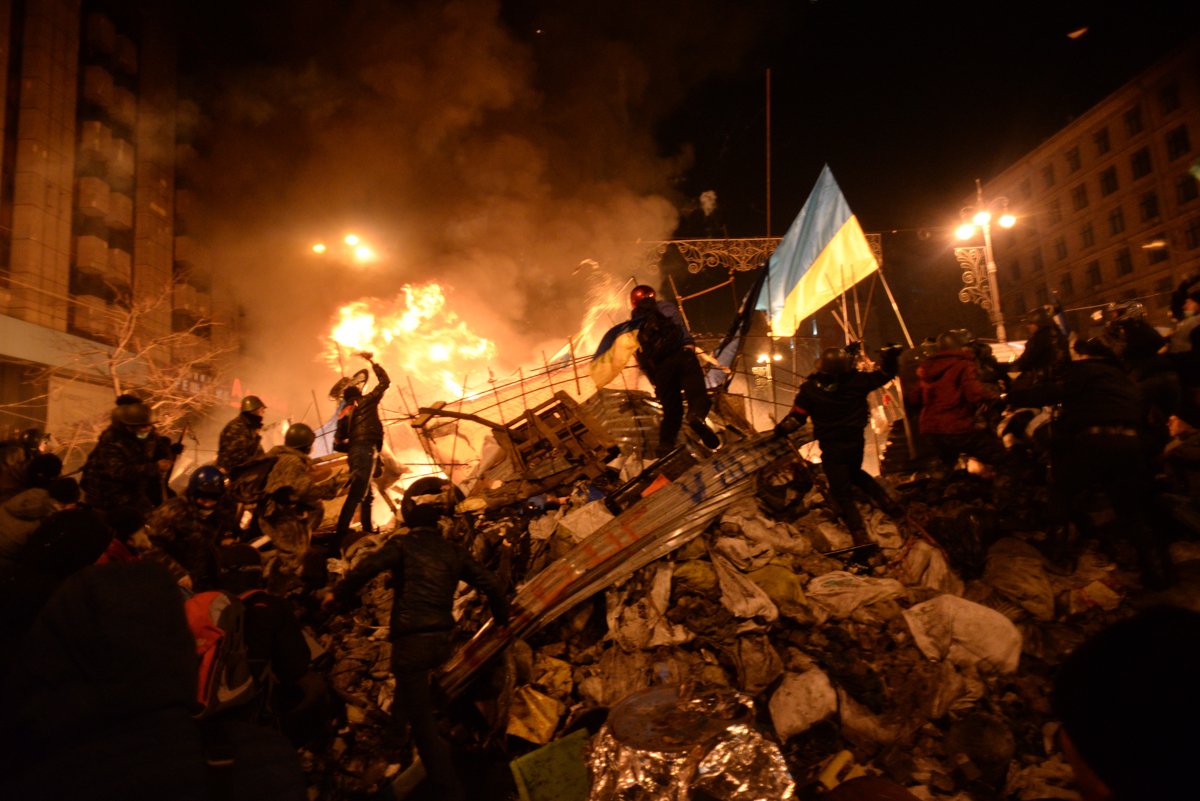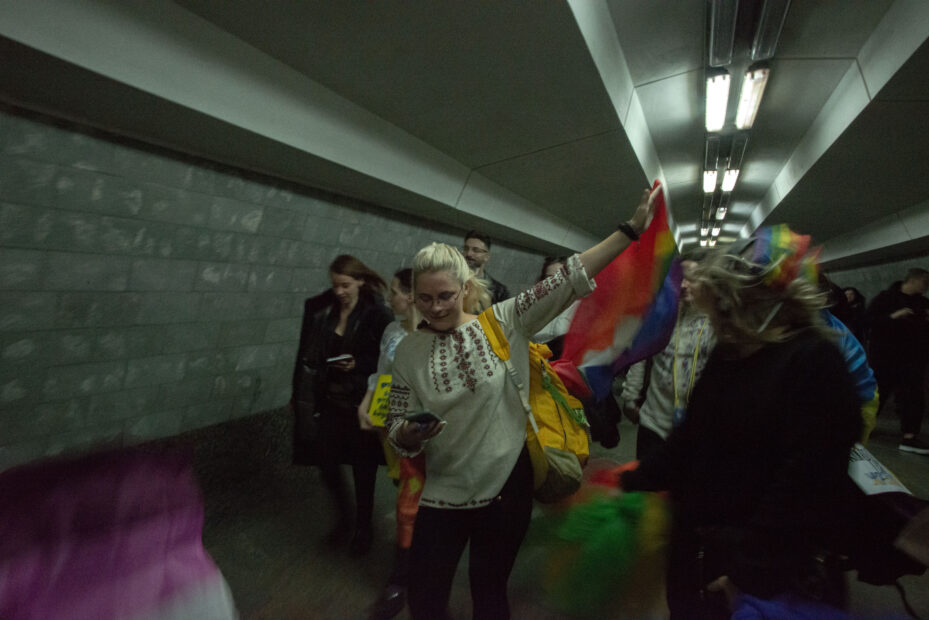The historical and current relationship between Russia/USSR and Nazi Germany as well as Ukraine's relationship with the Nazis is very complicated and cannot be properly understood by claiming that one side is on the Nazis team and the other isn't because someone wore a Nazi symbol.
USSR and the Nazis were allies at the outset of WWII. The USSR and Nazi Germany entered into the Molotov Ribbentrop Pact and agreed to divvy up Eastern Europe. The pact, which included favorable trade relationships, persisted until June of 1941, when the Nazis launched Operation Barbarossa against the USSR. Hitler was mad that the USSR had taken the Baltic states and made moves on Finland and Poland without seeking his approval. The USSR had no ideological problem with what Hitler was doing even though Hitler came to power by violently suppressing German socialists/communists.
Prior to all of this, Stalin starved 4-6 million Ukrainians to death during the Holodomor of 1932-33. This was about 10-20% of the population in Ukraine. Some believe this famine was due to the incompetence of the new Soviet collectivist agriculture. Most Ukrainians believe it was genocide directed by Stalin to quash a Ukrainian independence movement.
When the Nazis invaded Ukraine, the memory of the Holodomor was fresh. While Ukrainians wanted independence from the USSR more than they wanted to be part of the Third Reich, no one was sad to see the Communists get beat by the Nazis. This is where the complicated history of Stefan Bandera comes up. He originally worked with the Nazis but eventually struck out on his own as a Ukrainian independence leader and ended up in conflict with the Nazis. Bandera's movement ultimately lead to Ukraine independence upon the collapse of the Soviet Union. Bandera was also a fascist.
So, today, what Putin likes to call out as rampant neo-Nazis in Ukraine is much more complicated. Ukraine is a lot like the Midwest in the US in that it was once a manufacturing powerhouse and is now in decline. And just like in the Midwest, immigrants are scapegoated for the decline in material conditions due to de-industrialization. Just like in many parts of Europe and Russia, this has made far right nationalism popular in Ukraine. And the fact that the Nazis killed millions of Russians during WWII is also not lost on Ukrainians who wear Nazi symbols. But Ukrainians' neo-Nazi sympathies really do not go that far outside of a small hardcore fringe element. Nazi symbols are more like a rebel flag to a Southerner in the US rather than a commitment to genocide against the Jews. Bandera is just one of many problematic founding fathers in history. At least he did not own slaves like ours did.
With this complicated background in mind, if you really want to figure out whether Ukraine is a hotbed of neo-Nazism, just look at what they do instead of some picture of a soldier wearing an iron cross. Ukraine elected a Jewish president. Ukraine has a ways to go, but LGBTQ people have been emerging in an otherwise very culturally conservative country. LGBTQ groups even held a pride parade in the subway in Kharkiv recently. Ukraine has corruption problems, but has held free and fair elections. Press freedom is real in Ukraine.
In Russia, one of the reasons cited for war against Ukraine has been its emerging sympathies for LGBTQ rights. In Russia, gays are beaten in public with impunity. There is no press freedom in Russia and dissenting reporters are routinely murdered. There hasn't been a free and fair election in Russia since Putin took power. Jews in Russia face harsh anti-semitism.
So, if you are buying into an argument that Russia's invasion has some legitimacy because of neo-Nazi allegations against Ukraine, you are falling for some serious propaganda.



